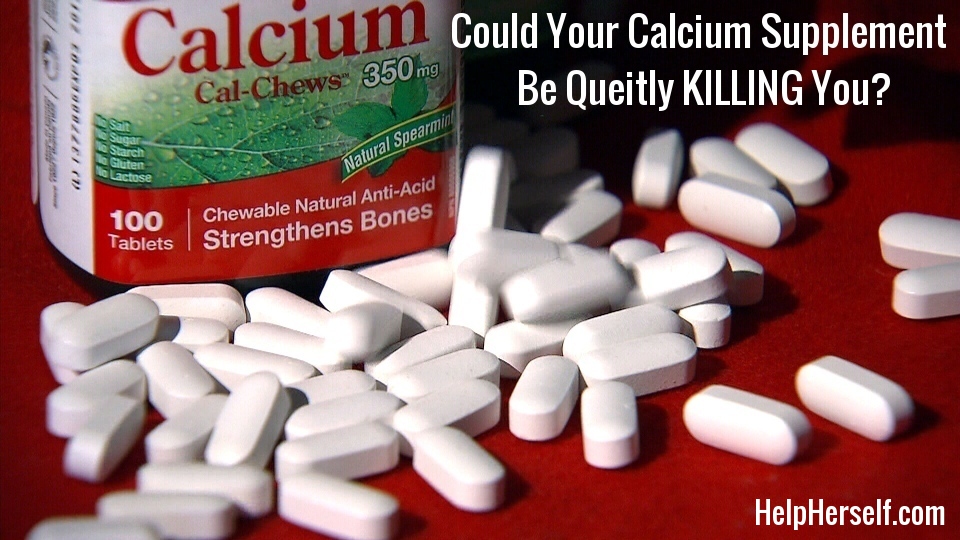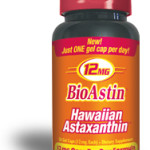Could Your Calcium Supplement Be Killing You? Calcium Supplements Risks

We all know about the importance of calcium for strong, healthy bones and teeth. Calcium is without question an important mineral for the body. Doctors frequently advise their patients to take a daily calcium supplement, particularly if they have, or at risk, of bone disease. BUT, what many doctors themselves don’t realize is that there are some very serious calcium supplements risks.
This information is based on several scientific studies, including one published in the Journal of the American Heart Association, and has been confirmed by some very renowned and highly respected medical institutions including The Mayo Clinic and Johns Hopkins University.
“Calcium supplements may increase the risk of heart damage and plaque buildup in arteries, even though a diet high in calcium-rich food appears to help protect the heart, a study concludes”.
– Source, Johns Hopkins University.
There is growing scientific concern about the use of calcium supplements, often taken by women, to prevent brittle bones. The problem is that a of doctors, if not most doctors, have never heard of this, and they are advising their patients to take calcium supplements – even though it may dramatically increase their risk of heart attack or stroke. Despite all the research studies and information about calcium supplements risks coming from major medical centers like Johns Hopkins and the Mayo Clinic, most doctors are entirely unaware of the calcium supplements risks.
Once again, its very important for people to arm themselves with knowledge and information to protect their own health. Don’t rely on the doctors to always be on top of the latest information, because all too often, they are not.
According to the renowned Johns Hopkins Medical University:
“When it comes to using vitamin and mineral supplements, particularly calcium supplements being taken for bone health, many Americans think that more is always better,” says Erin Michos, associate director of preventive cardiology and associate professor of medicine at Johns Hopkins University. “But our study adds to the body of evidence that excess calcium in the form of supplements may harm the heart and vascular system.”
Consuming a diet high in calcium may be a much better approach than taking calcium supplements, because dietary calcium does not have the same negative effects on the arteries and cardiovascular system as calcium supplements do. By getting your calcium from a diet rich in calcium, you eliminate the calcium supplements risks.
An estimated 43 percent of American and Canadian adults take calcium supplements, or a supplement such as a multi-vitamin that includes calcium. But the fact is that studies have shown that calcium consumed in the form of a calcium supplement doesn’t even make it to the bones, particularly in older people.
The University of North Carolina Gillings School of Global Public Health has stated that the calcium in calcium supplements doesn’t all “make it to the skeleton, or gets completely excreted in the urine”, and therefore it “… must be accumulating in the body’s soft tissues”, including the arteries and the aorta of the heart, where it does potentially fatal damage. Scientists have told us that as a person ages, calcium-based plaque builds up in the aorta and other arteries, impeding blood flow and increasing the risk of heart attack.
A research study on calcium supplements risks published in 2012 showed that calcium supplements may increase your risk of cardiovascular disease. The study followed 24,000 people who were taking calcium supplements and found that they were twice as likely to have a heart attack than the control group (people who were not taking calcium supplements).
The world renowned Mayo Clinic has confirmed that there are indeed calcium supplement risks:
“The calcium in these supplements could make its way into fatty plaques in your arteries — a condition called atherosclerosis — causing those plaques to harden and increase your risk of heart disease”.
– Source: The Mayo Clinic
To put it in very simple language, plaque in the arteries is what leads to “hardening of the arteries”, which is what causes heart attack and stroke. And calcium contributes to arterial plaque. To say the same thing in more advanced medical terminology, intracellular calcium concentrations contribute to, and accelerate, atherosclerosis. Calcium is a component of atherosclerotic plaque and when calcium salts build up in soft tissues it causes hardening, which is technically called calcification.
Yikes! So it seems that taking calcium isn’t as great an idea as we have all been led to believe after all.
A long-running research project at six esteemed research universities, including Johns Hopkins, followed 2,742 research participants over 10 years. The ethnically diverse participants ranged in age from 45 to 84, and were roughly half male and half female. All completed a 120-question questionnaire about their dietary habits to determine how much calcium they took in from supplements, and how much calcium they injected by eating calcium rich foods such as dairy products; leafy greens; calcium-enriched foods, like cereals. The investigators used cardiac CT scans at the beginning of the study, at again toward the end of the study 10 years later to measure participants’ coronary artery calcium scores, a marker of heart disease risk. After examining the CT scan results, researchers concluded that participants with highest calcium intake from food—more than 1,022 milligrams a day—showed no increase in relative risk of developing heart disease, while those taking calcium supplements did show increased risk for cardiovascular disease, demonstrating that there are very real calcium supplements risks.
“Based on this evidence, we can tell our patients that there doesn’t seem to be any harm in eating a heart-healthy diet that includes calcium-rich foods, and it may even be beneficial for the heart,” the head of the study said. “But patients should really discuss any plan to take calcium supplements with their doctor to sort out a proper dosage or whether they even need them.”
But since many doctors aren’t even aware that there are calcium supplement risks, patients may actually need to point their doctors to these studies to make them aware.
More than half of women over 60 take calcium supplements, often on the advice of their doctor, to reduce osteoporosis risk. The US Centers for Disease Control and Prevention say coronary heart disease kills more than 370,000 people each year in the United States.
But there is some good news.
People who feel they need to supplement with calcium can mitigate the risks of developing calcification of the arteries by also taking adequate amounts of magnesium along with their calcium. Magnesium is a natural calcium channel blocker. When you take a calcium supplement you inadvertently create a magnesium deficiency in your body because calcium and magnesium always need to be in balance with one another for the body to function properly (similar to the idea that sodium and potassium must always be in balance). So taking a calcium supplement without also taking a magnesium supplement may induce elevation of intracellular calcium concentrations.
As stated in an article published in Life Extension Magazine, taking a calcium supplement over time, without adequate magnesium, “sets the stage for endothelial dysfunction and formation of atherosclerotic plaque.”
This is why holistic doctors tell their patients that taking a magnesium supplement can actually help prevent heart attack and may help counteract calcium supplements risks.
Life Extension Magazine has stated that “If calcium supplements do increase heart attack and stroke risk, a lot has to do with magnesium deficiency. The US Department of Agriculture admits that 57% of the American public suffers inadequate magnesium intake. The reality is an even higher percentage of Americans are not getting optimal amounts of magnesium”.
If you take a calcium supplement on an ongoing daily basis, without also supplementing magnesium, you may very well be accelerating the occlusion of the arteries in your heart and brain.
A few vitamin manufacturers are now fortifying their supplements with extra magnesium in order to mitigate calcium supplements risks., causing some consumers to ask why so much magnesium and so little calcium? The answer is that most people are not getting enough magnesium to protect against vascular disease, whereas more calcium can readily be obtained from dietary sources.
Since excess calcium intake without an increase in magnesium intake may increase heart attack and stroke risk, you have to be sure to balance your intake of calcium and magnesium.
But as we said at the beginning of this article, calcium is important to prevent osteoporosis, brittle bones, and serious bone fractures, there is no disputing that.
In fact, insufficient calcium itself accelerates atherosclerosis by causing excess removal of calcium from bone into the bloodstream where it calcifies arteries. Calcium-deficient diets increase the rate of tissue calcification by 170% while calcium-supplemented diets reduce calcification by 62%.
So the bottom line is if you are going to supplement with calcium, ensure you are supplementing with BOTH calcium and magnesium. To be even safer, you should also supplement with vitamin K2.
A large percentage of older women are taking calcium supplements as they have been taught, to prevent osteoporosis – but they do not know they should also be supplementing with magnesium or vitamin K2. In the process, they are unknowingly setting themselves up for arterial calcification and subsequent heart attack and ischemic stroke.
These are some very real calcium supplements risks which can potentially be avoided with by adding magnesium, and possibly vitamin K as well, to their supplement regime.







Leave a Reply